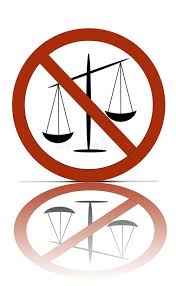The struggles crash over me like a tidal wave, sudden and merciless. After seven years as a stay-at-home mom, Mitchell blindsides me with his divorce announcement, and I flee the state with Samuel to seek solace with family. But he files a bogus “emergency motion,” and just like that, the court kicks me out of our marital home—even though no one has served me the divorce papers yet, which would legally bar me from leaving. He plays an audio tape in court where I call him an asshole, and Samuel shouts from his room, “I heard that!” I scream inside: Is it really illegal to curse within earshot of a child? That flimsy excuse rips me from my home, leaving me homeless, heartbroken, and utterly lost.
Where can I turn? I have no family in the state, no job to fall back on. Court letters and motions flood my mailbox weekly, each one a fresh stab of confusion and terror. I scramble to understand this legal nightmare—I lack the knowledge, the experience, the strength to fight back alone. Desperate, I hire an attorney and hole up in a dingy hotel for two agonizing weeks, my world shrinking to sterile walls and endless tears. The stern, childless judge delivers the cruelest blow: He strips Samuel from my arms and banishes me from our home. For Mitchell, the pain hits his wallet—he must pay me $1,000 a week temporarily, and the court grants me weekends with my son. But I wander like a zombie, hollow and aching, robbed of my daily “son-shine” that has illuminated every moment since Samuel’s birth. Without him, I forget how to breathe, how to exist.
In that bleak hotel isolation, with none of my belongings, my dear friend Heather bursts in like a lifeline, her arms laden with essentials: pink ice cream cone pajamas to bring me laughter and comfort. A toothbrush, toothpaste, deodorant, and more. Her thoughtful gesture wraps me in warmth amid the cold despair—I’ll never forget her kindness in my darkest hour. Every waking moment, I haunt the hotel’s public computers, firing off emails to anyone who might listen. I pour out my soul, begging for help, guidance, a place to live for Samuel and me. Responses trickle in: shock, apologies, well-wishes. But many shy away, as if divorce is a plague they might catch from me. I labor feverishly, day and night, often in my pajamas at the lobby desk. The kind front desk gentleman grows familiar with my face; he hears my story and his eyes fill with genuine pity, asking for updates each time our paths cross. At $99.99 a night, the bills pile up like accusations—I know I can’t hold out much longer, my fear mounting with every tick of the clock.
Then, a miracle calls: Samuel’s den leader in his Adventure Pups organization, Kimberly, reaches out. She’s heard about my nightmare and knows of a rental opening next door to her. I hesitate—Mitchell always blocked me from joining their events, even though I signed Samuel up to force him into fatherhood. I barely know her, but she calls repeatedly, sharing her own multi-year divorce battle and her life with kids. She sounds solidly on my side, promising real help, though a nagging doubt whispers in my mind: Why me? Still, I meet the landlord, Sheila, a warm woman in her early 60s, on her stunning lakeside property. The in-law suite downstairs beckons with its double deck for sunbathing and fishing, the lake sparkling like a promise of peace.
I insist on bringing Samuel that weekend to approve. Friday at 6:00 p.m., I pull up to our old driveway’s bottom—forced to wait there like a criminal in my own neighborhood, in the home I transformed with love. That childless judge’s order feels like a deliberate humiliation, a slap that stings anew each time. Samuel hops in, chattering unprompted about life with Mitchell, his sharp mind spilling truths like only a child can. He reads at a fifth-grade level in first grade, and as the saying goes, “out of the mouths of babes”—kids speak raw honesty, especially to a bonded parent like me. I describe our potential new home, and his eyes light up at the electric gate with its security code. We wind down the steep driveway to our cozy space: double sliding glass doors, geese honking everywhere, the lake glistening behind us. The suite offers basics and two bedrooms—simple, but ours. Samuel nods eagerly, and I seal the deal.
Soon, Kimberly strolls over with her two boys, and they dive into play with Samuel. Hope flickers: Maybe I can forge a sliver of joy, a new normal for us both. In the weeks that follow, Kimberly frequents my place, and Sheila joins too. We bond over drinks late into the night, venting about our men, our laughter cutting through the pain like defiant sparks in the darkness.
Kimberly and I often dive into private chats about Sheila after she heads to bed, our voices hushed but laced with mischief. We mimic her dramatic swings of that necklace and charm, pretending it’s some mystical oracle answering our divorce questions—yet we spot her sneaky finger guiding it to the “yes” or “no” she craves. Hysterical laughter erupts from us, mixed with a twinge of unease, as we puzzle over why she ignores her late husband’s ashes for months, leaving them with a friend while she dives headfirst into a new romance that sparked while he lay dying. These snarky jokes pull us closer, forging a bond in the chaos of our shattered lives.
She claims to clean homes for cash while I scour job listings relentlessly, but I pour every spare second into the law library—devouring books, scribbling notes, and dialing attorneys across the region, my desperation fueling a crash course in survival. I uncover the brutal truth: divorce and custody battles boil down to a ruthless game, where strategy trumps justice, and my heart aches with the injustice of it all.
In the weeks that follow, Kimberly begs me to babysit her kids while she chases dates, her life a whirlwind of fleeting flings. She flaunts a restraining order against her soon-to-be ex, yet I stumble outside one morning with my coffee, only to freeze as he pulls up on his boat—she greets him eagerly, and they speed off together like nothing’s amiss. Shock surges through me; how does she enforce a restraining order while inviting him right to her doorstep? I tag along to her court hearings a few times, witnessing her crocodile tears and tales of terror, my jaw clenched in the pew as I sit stone-faced, seething at the manipulative theater unfolding before me.
Kimberly pleads for an affidavit vouching for her character, and I agree, but my own case consumes me, shoving it to the back burner. One day, as I exit the law library, my phone rings—an associate from her attorney’s office demands the document immediately. Before I can respond, intuition screams that Kimberly’s pulling strings, her urgency reeking of hidden motives. I confess my concerns to the associate: her ex docking at her place, her welcoming him aboard for secret outings. Honesty compels me—I spill the truth. I finish the affidavit, keeping it vague and neutral, all while badgering Kimberly to write one for me. Each time, she dodges with flimsy excuses, her delays stoking my growing fury.
That’s when the pieces shatter into place—she’s playing me like a fool. The same day suspicion ignites, Samuel unwittingly confirms it. I pick him up, and my chatty little truth-teller blurts out that Mitchell drove him to Kimberly’s house; while he romps outside with her boys, she and his dad huddle indoors, alone. Rage boils inside me, a scorching inferno threatening to consume everything. This woman—the one who dumps her kids on me to prowl for hookups with strangers from convenience stores, grocery aisles, even Home Depot—now consorts with my ex? She parades as a victim in court, all prim and terrified, while I unwittingly enable her double life.
All along, she begs to use my washer and dryer, claiming hers sputters uselessly, and even wheedles a key to my place. I trust her blindly, granting access, only to end up laundering her clothes myself—washing, folding, stacking them neatly for her free pickup, my kindness twisted into servitude. The realization that she and Mitchell conspire hits like a gut punch, the knot in my stomach twisting into unbearable agony amid this endless betrayal, no safe haven in sight.
I don’t doubt she copies my key under that laundry pretext, sneaking into my files to feed intel to Mitchell. And straight from her lips, I learn the bombshell: She’s done time in prison—not just jail—for drugs and intent to distribute! This den leader, this supposed ally? Horror floods me at the toxic company I’ve kept, my mind reeling with paranoia—did Mitchell plant her from the start, a spy in friend’s clothing to sabotage my case? I plummet into a twilight zone of deceit, appetite vanished, trust obliterated, every shadow whispering treachery as I fight to claw my way out.
Then, Richard, Kimberly’s estranged husband, calls me out of the blue, his voice urgent as he begs to talk. Dread coils in my gut—I’m sinking deeper into their twisted web, a pawn in their divorce drama that mirrors my own nightmare. He pleads for me to testify on his behalf, to spill everything I know. Richard lays it bare: Kimberly constantly calls and texts him, luring him to her place with whispers of missing him, toying mercilessly with his mind and heart. All this while I witness her parade of nighttime escapades with random suitors, leaving me to babysit her kids for free, my trust exploited like a fool’s bargain.
The betrayal hits me like a thunderclap. Kimberly has manipulated me from the start—for insider info on my case, for endless free childcare and laundry services, even for some sordid fling with Mitchell, the man who shattered my world. And in return? She never bothers to write that affidavit she promised. Fury surges through me, hot and righteous; I agree to testify for Richard, conviction steeling my resolve—this feels like justice, a reclaiming of my power.
On the hearing day, they call me to the stand, and shock ripples through the courtroom. Kimberly’s attorney and his associate gape in disbelief that I’ve switched sides, their faces twisting in confusion. Her lawyer reads my affidavit aloud, zeroing in on the line: “…she’s a great mom,” demanding I elaborate. He lunges to discredit me, his words sharp as knives, but the judge intervenes, urging me to respond. I seize the moment, my voice steady despite the storm inside: “Does she love her children? Yes. But does she make them a priority? No.” With that Mr. Whittmeier wanted to end my testimony but I asked the judge if I could finish my answer and elaborate and he agreed. I continued, “I say this because I’m the one watching them until midnight, sometimes on school nights, while she’s out gallivanting with various men.”
The attorney circles back, insistent: “But you said she’s a great mom.” I fire back without hesitation: “That’s a relative word, Mr. Whittmeier. How do you quantify that?” Silence crashes over the room. I lock eyes with the judge, who snaps his head toward Mr. Whittmeier, waiting for his next move—but the lawyer freezes, staring at me like a deer in headlights, utterly stunned.
Mr. Whittmeier knows my story all too well; Kimberly pushed me to consult him for legal advice, draining $300 from my pocket for a useless hour of babble. Back then, I was a shattered mess, vulnerable and naïve, clueless about the cutthroat games of court—because I’m honest to my core, not a schemer. Neither he nor the judge anticipates this fire blazing from me, this unyielding spark of defiance. To this day, that moment swells my heart with pride, a beacon of strength amid the ruins.
Richard received primary custody of his children and Kimberly received standard parenting time according to state law. I never spoke with her again and I moved out of my in-law suite rental next door to her a week later.
I contacted the national organization about the prison charges against Samuel’s den leader. Despite providing all my information, I asked for their policies and procedures in background checks of their leaders for the sole purpose of protection for our youth. I received delayed responses, automated replies, and no genuine interest. They seemingly swept it under the rug, and Kimberly remains active in the organization.






